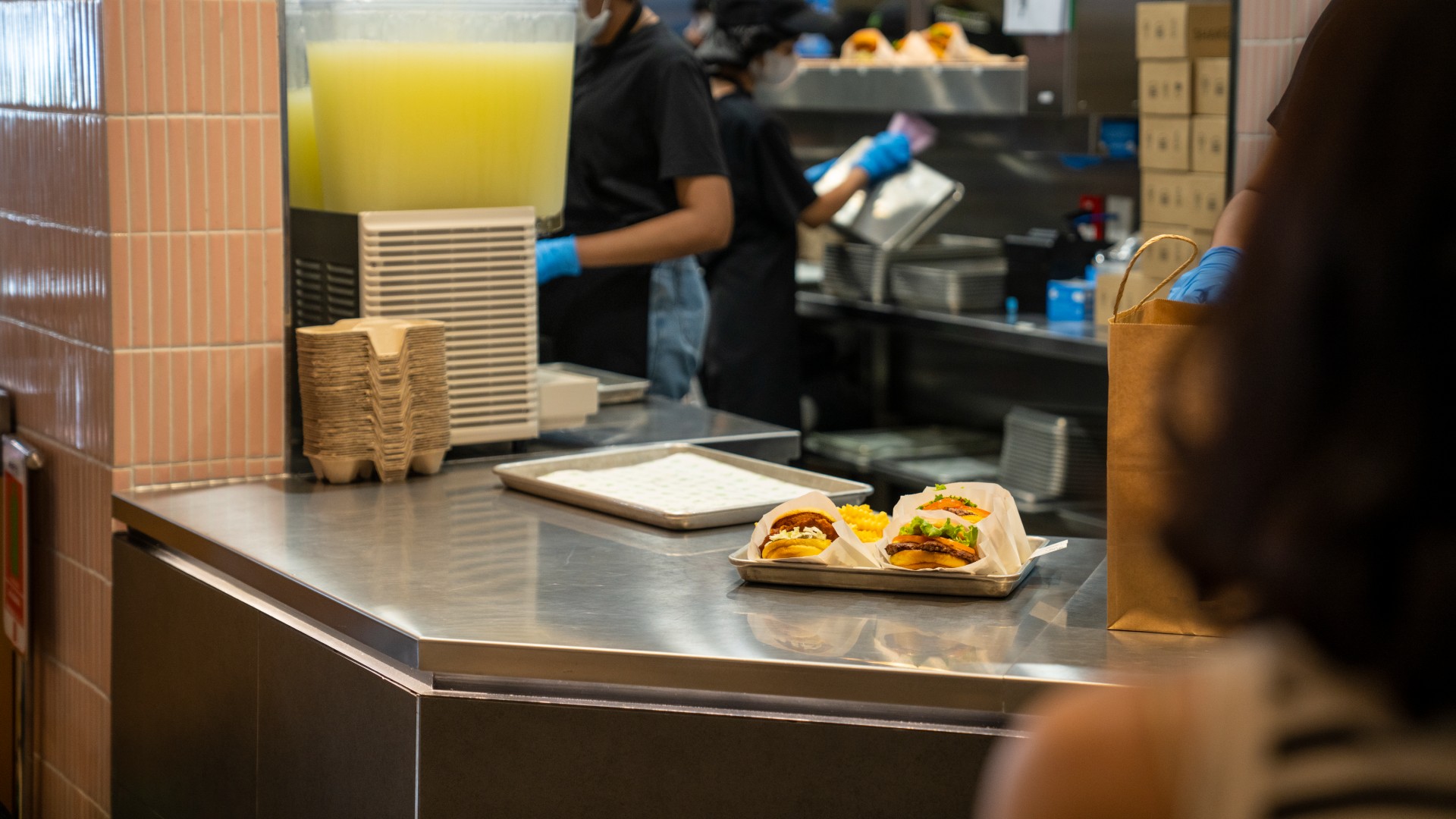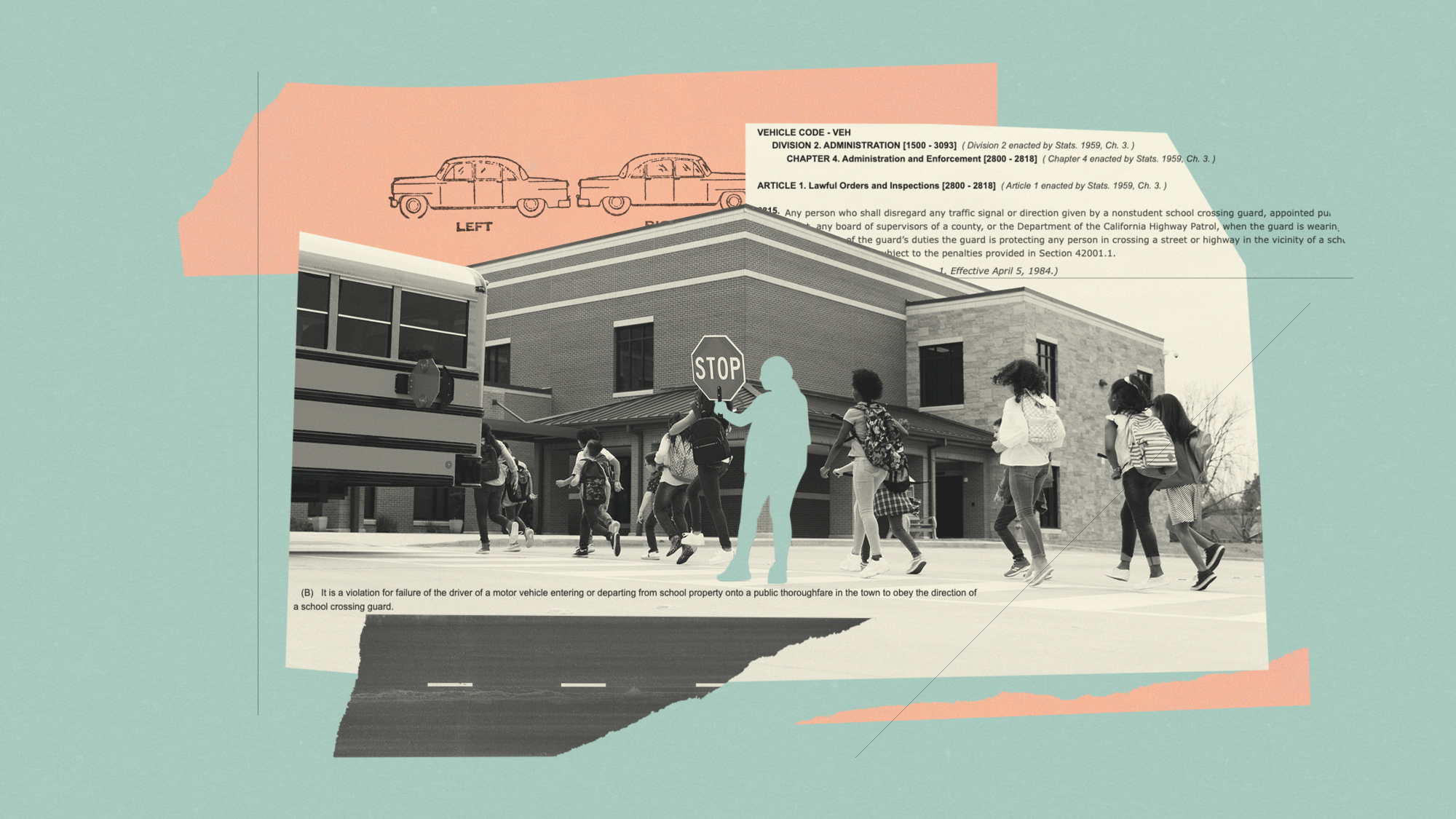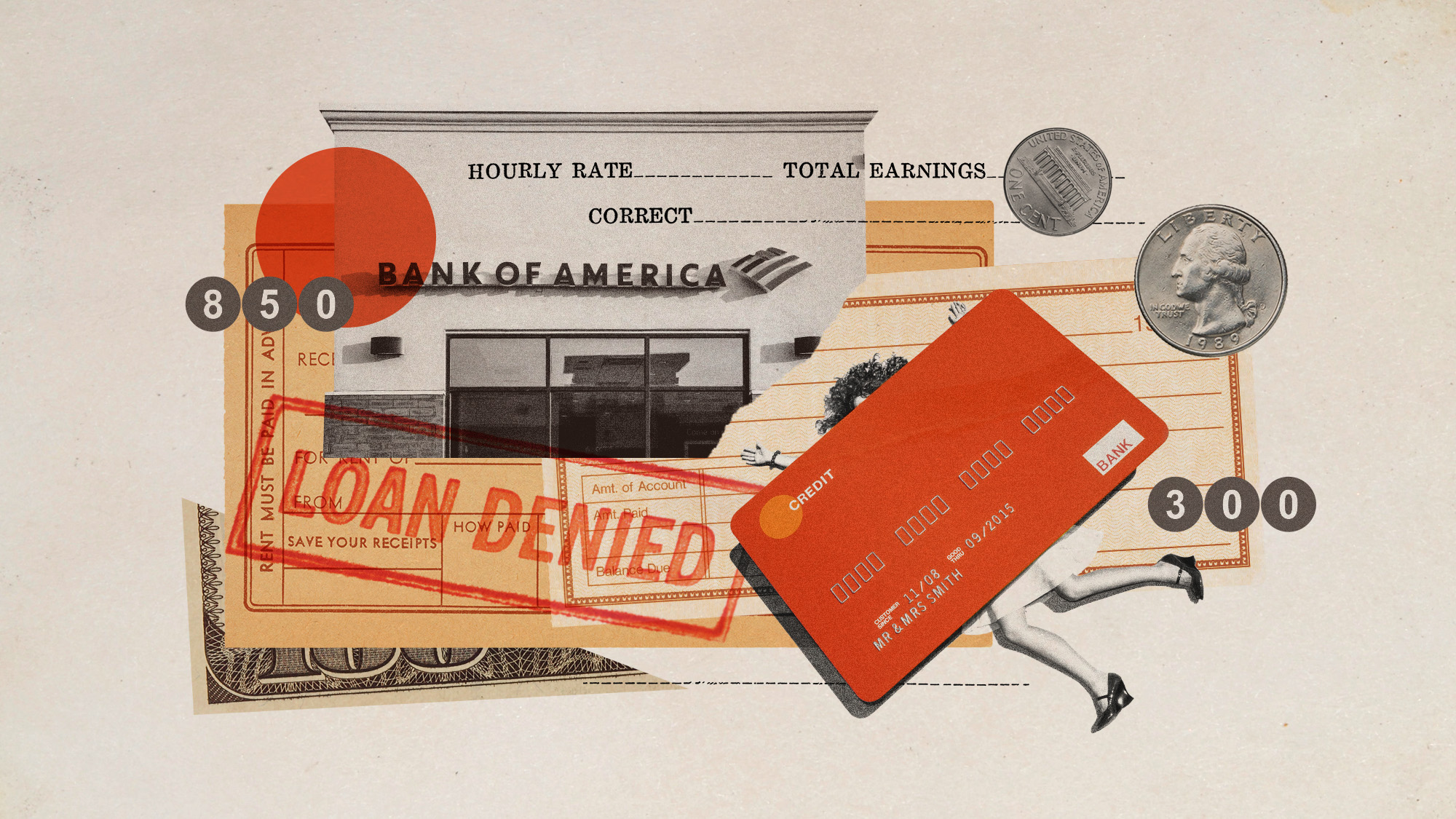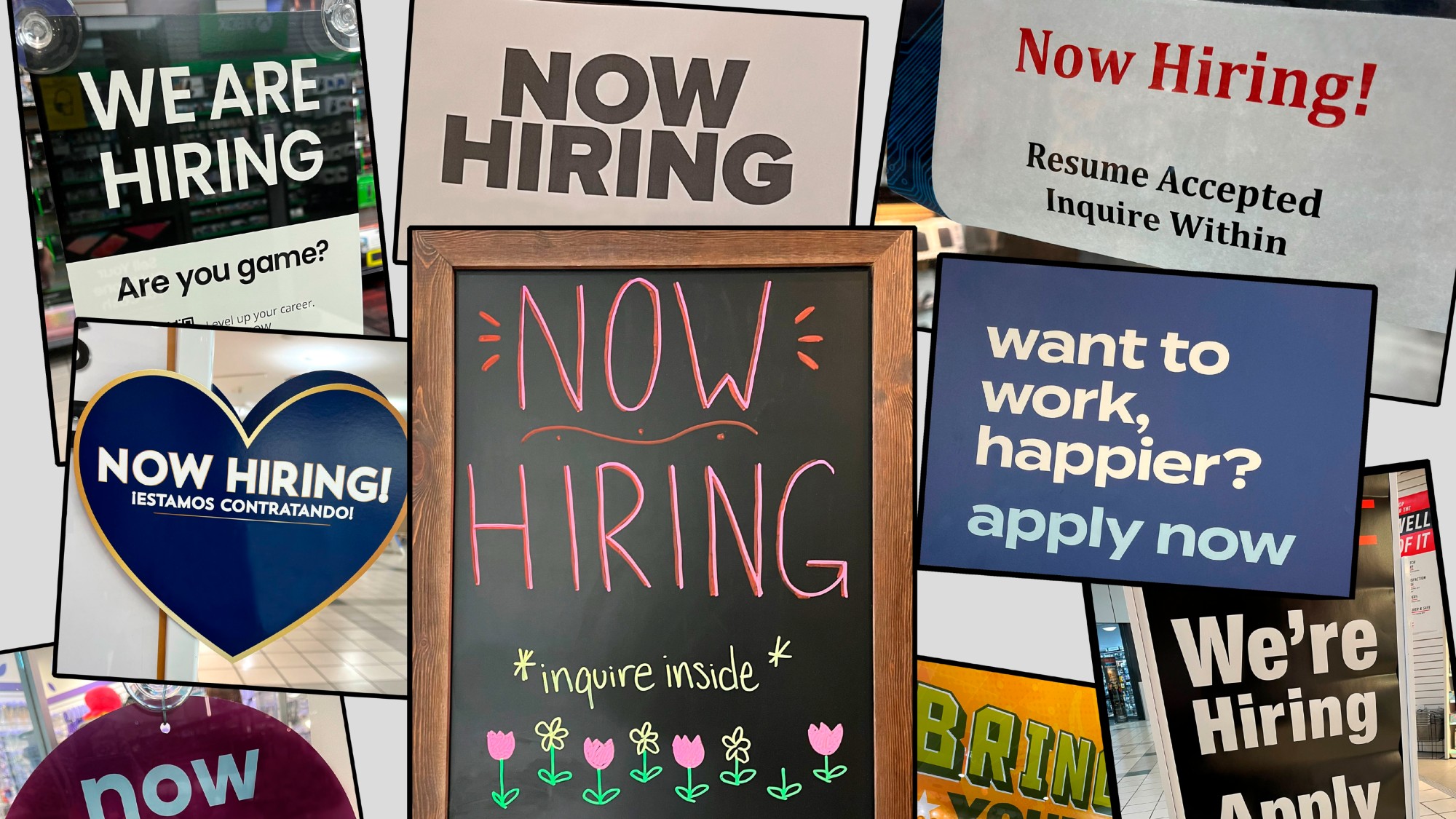Child labor violations surge as more Gen Z teens work
More high schoolers have jobs. But are those jobs safe?


A free daily email with the biggest news stories of the day – and the best features from TheWeek.com
You are now subscribed
Your newsletter sign-up was successful
Thousands of teens are revitalizing the part-time job market. It is a significant shift for Gen Z, with an increasing number of them seeking after-school and summer jobs, "reversing a trend of forgoing work when millennials were teens," The Washington Post said in a recent analysis.
"You know, in the last year or two, they've really helped keep the service sector going," said Abha Bhattarai, economics analyst for the Post, to Marketplace. Several restaurant owners told her that if it were not for the influx of teens working for them, "they just would have had to shut down by now."
Still, this galvanizing employment trend seemingly has an underbelly, as the recent boost in child labor law violations highlights.
The Week
Escape your echo chamber. Get the facts behind the news, plus analysis from multiple perspectives.

Sign up for The Week's Free Newsletters
From our morning news briefing to a weekly Good News Newsletter, get the best of The Week delivered directly to your inbox.
From our morning news briefing to a weekly Good News Newsletter, get the best of The Week delivered directly to your inbox.
Why more teens want a job
At least 250,000 more teens are working compared to before the Covid-19 pandemic, according to the Post's analysis of Labor Department data. The wave of teen applicants is boosting employment for restaurants and retail stores and "changing cultural norms," said the Post. Overall, 37% of teens aged 16-19 had a job or were looking for one in 2023, "the highest annual rate since 2009," said the Post. The recent uptick, which accelerated in the 2000s, breaks a pattern of more than four decades of declines in teen employment.
A plethora of open entry-level positions, especially in hospitality and retail, have helped lure more teens into the workforce. In interviews, teens cited several reasons for seeking work, including "financial independence and the opportunity to try new things," the Post said. Inflation has also been a major influence as teens look to help their parents cover rent and utilities or offset the rising cost of gas, car insurance or hanging out with friends.
"When the labor market is tight, more teens work," Elizabeth Ananat, an economics professor at Barnard College, told the Post. "When teens hear there are jobs available, they take the jobs."
The country's reopening after the 2020 lockdowns left businesses urgently needing employees to meet "Americans' insatiable appetite for dining out, shopping and traveling," the Post said. However, businesses found it more challenging to fill such positions, with many service workers leaving for more lucrative jobs, "forcing employers to tap into a new source of labor: teens," the outlet said. For high school students, the boom in job opportunities came "just as they were finding their footing after months of virtual schooling," said the Post. "During last year's jobs boom, the unemployment rate for 16- to 19-year-olds dropped to a 70-year low," the outlet added.
A free daily email with the biggest news stories of the day – and the best features from TheWeek.com
A simultaneous spike in child labor violations
In the background of this shift was an ominous surge of child labor violations in 2023, which the Washington Post said was fueled by fast food companies illegally scheduling thousands of teens to work long, late hours. The trend was especially prominent at restaurants with franchised locations, such as McDonald's, Sonic and Chick-fil-A, per the Post's analysis of federal data. The outlet found that in some cases, companies have hired children under 13 years of age, "violating 1930s-era laws designed to protect their safety and educational opportunities."
Child labor violations more than tripled in the last decade, and breaches in food service increased nearly sixfold, according to the Post's analysis of Labor Department data. Within the first nine months of last year, officials found over 4,700 teens under 18 working in violation of federal child labor laws, "more than three-quarters of those in food service."
That data has not stopped some states from loosening local mandates to allow teens to work longer hours. Florida 16- and 17-year-olds are a step closer to being allowed to surpass 40 work hours during the school week after the Florida House passed a Republican-backed bill that "Democrats said would let employers exploit working teens," said Tallahassee Democrat.
The bill's sponsor, Linda Chaney (R-St. Pete Beach), said the bill, entitled "Employment and Curfew of Minors," was about "choice and opportunity for families," per Tallahassee Democrat. "I trust that our families and that our teens will make the right choice for them in their own individual situation."
Critics are calling the bill a "child labor" bill that would "walk back decades of laws protecting children and preventing them from working overly long hours," Tallahassee Democrat said. "Here we are, opening up the possibility that children will be exploited as cheap labor. They deserve so much more," said Rita Harris (D-Orlando).
Theara Coleman has worked as a staff writer at The Week since September 2022. She frequently writes about technology, education, literature and general news. She was previously a contributing writer and assistant editor at Honeysuckle Magazine, where she covered racial politics and cannabis industry news.
-
 Switzerland could vote to cap its population
Switzerland could vote to cap its populationUnder the Radar Swiss People’s Party proposes referendum on radical anti-immigration measure to limit residents to 10 million
-
 Political cartoons for February 15
Political cartoons for February 15Cartoons Sunday's political cartoons include political ventriloquism, Europe in the middle, and more
-
 The broken water companies failing England and Wales
The broken water companies failing England and WalesExplainer With rising bills, deteriorating river health and a lack of investment, regulators face an uphill battle to stabilise the industry
-
 Being a school crossing guard has become a deadly job
Being a school crossing guard has become a deadly jobUnder the Radar At least 230 crossing guards have been hit by cars over the last decade
-
 Rising costs are making it harder for people to afford pets
Rising costs are making it harder for people to afford petsUnder the Radar Shelters are filling up as a result
-
 Gen Z is facing a credit score crisis
Gen Z is facing a credit score crisisIn the Spotlight The average Gen Z credit score has dropped three points in 2025
-
 What is 'career catfishing' and why are Gen Z doing it?
What is 'career catfishing' and why are Gen Z doing it?Under The Radar Successful job applicants are increasingly disappearing before their first day
-
 Why bosses are hiring etiquette coaches for Gen Z staff
Why bosses are hiring etiquette coaches for Gen Z staffUnder The Radar Employers claim young workers are disengaged at interviews and don't know how to behave in the office
-
 AI is creating a luxury housing renaissance in San Francisco
AI is creating a luxury housing renaissance in San FranciscoUnder the Radar Luxury homes in the city can range from $7 million to above $20 million
-
 Shaky starts: A jobs drought for new grads
Shaky starts: A jobs drought for new gradsFeature The job market is growing, but Gen Z grads are struggling to find work
-
 Exurbs: America's biggest housing trend you haven't heard of
Exurbs: America's biggest housing trend you haven't heard ofUnder the Radar Northeastern exurbs were the nation's biggest housing markets in 2024
